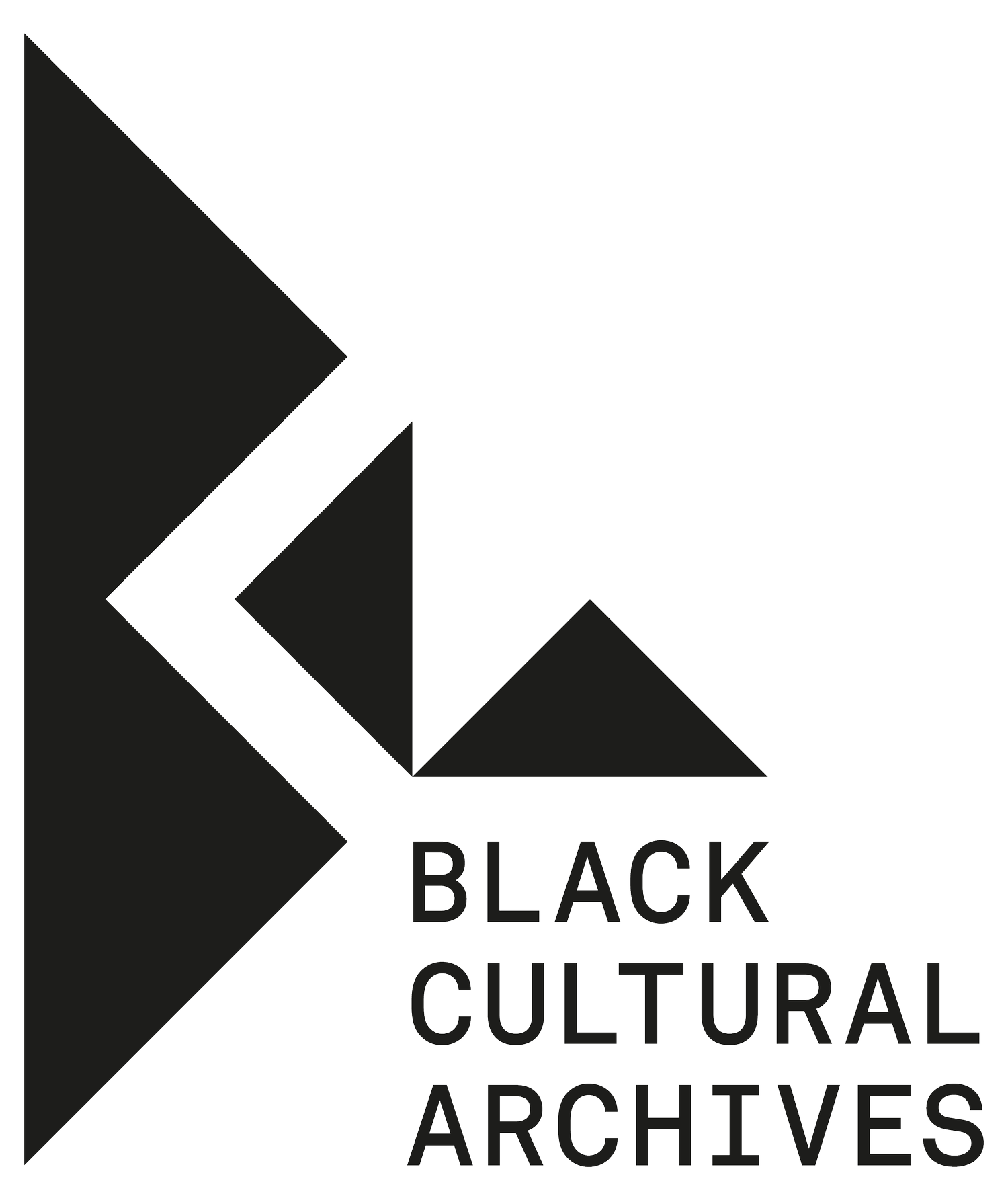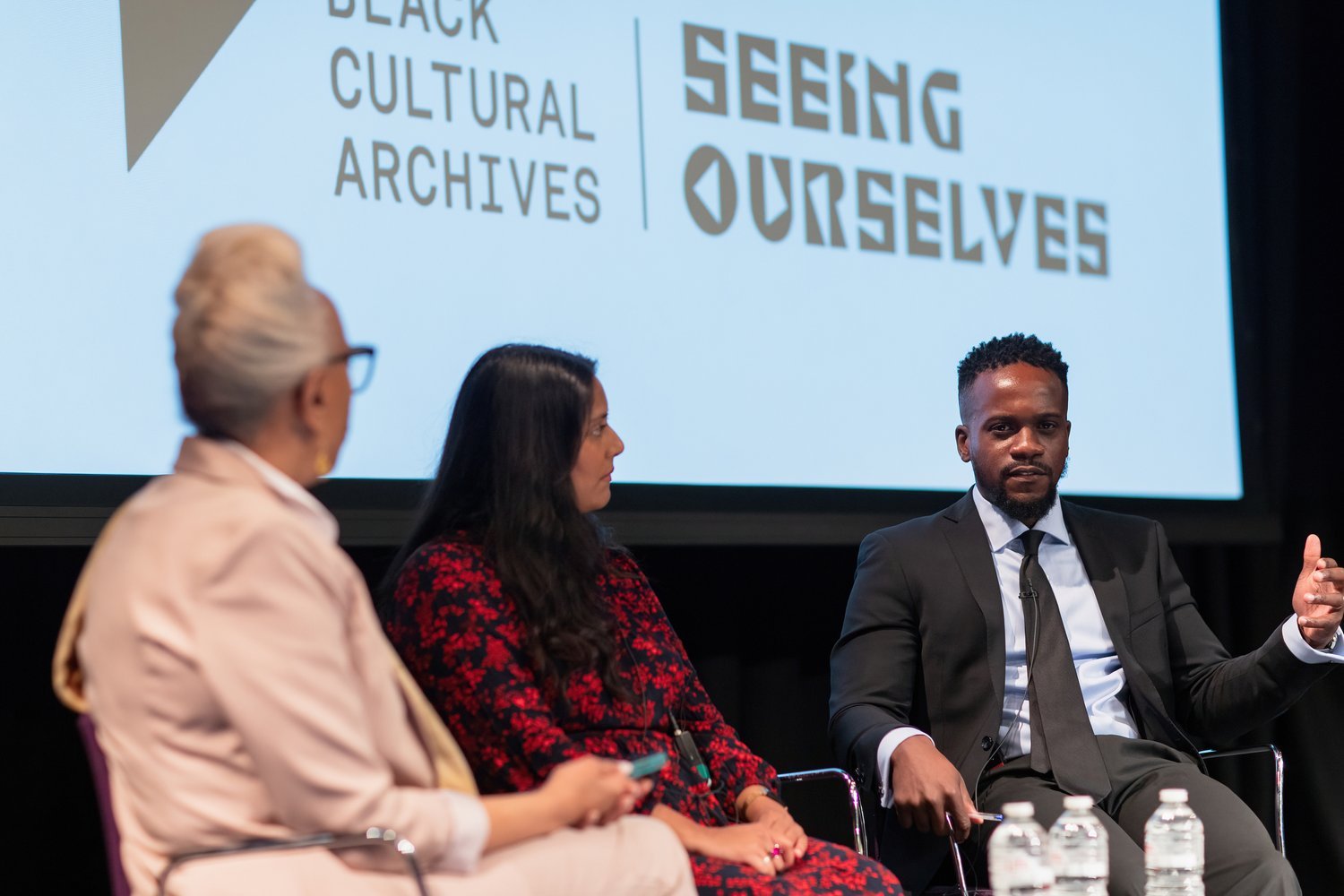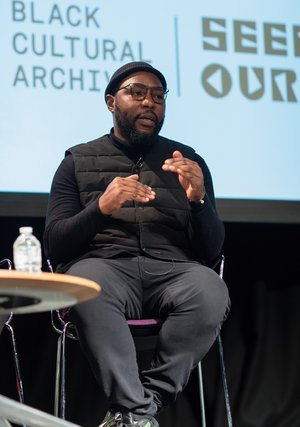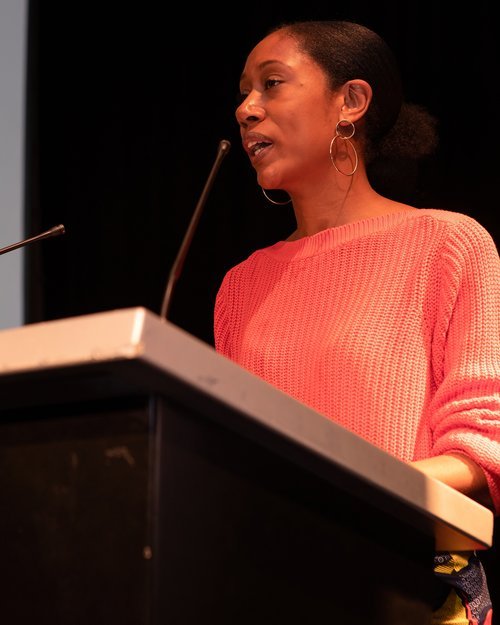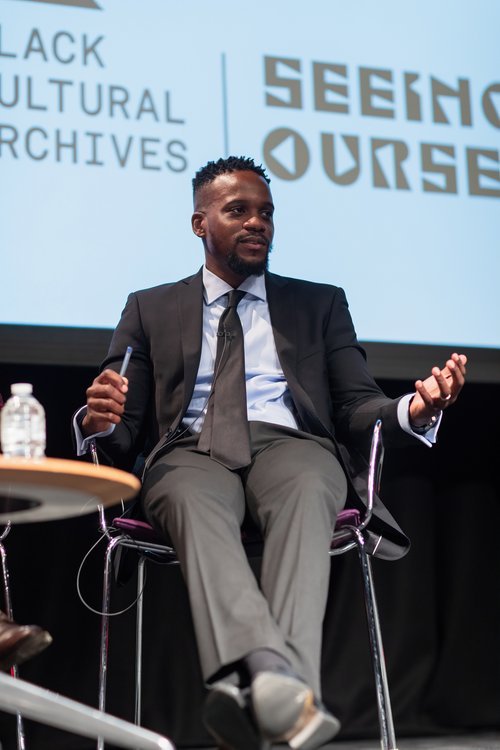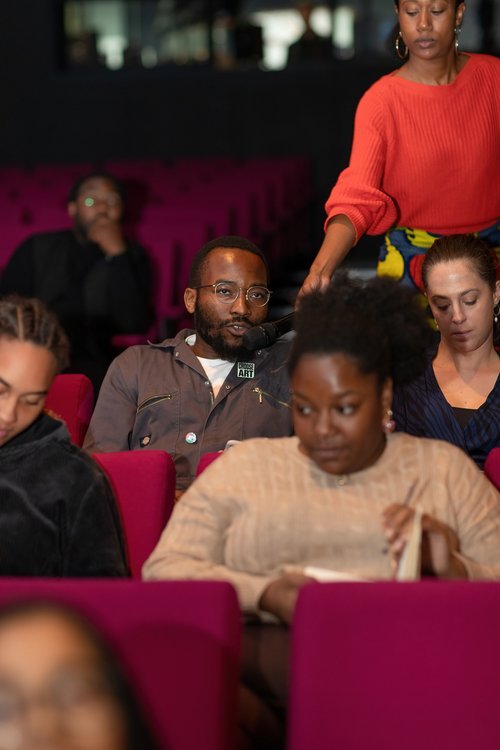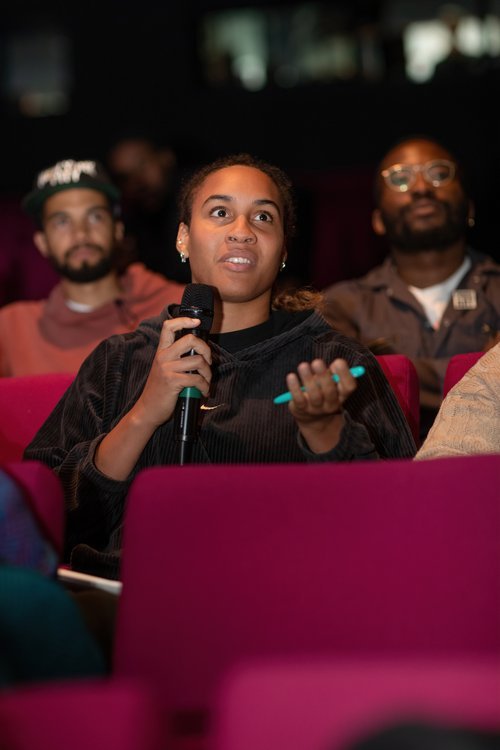BCA Pathways 2022 Career Event
BCA Seeing Ourselves Project Administrator, Rachel Haase reflects on the BCA Pathways 2022 Career Event.
On Thursday, 15th September 2022, Black Cultural Archives delivered our annual career event at the prestigious Museum of London. Joined by renowned individuals and exhibitors from leading organisations, the aim was to illuminate pathways into the arts and heritage sector – a field where Black and global majority individuals are typically underrepresented. We discussed the best ways to navigate our careers in spaces that are often not diverse, inclusive, or equitable.
After assembling for refreshments, we directed attendees to the Weston Theatre. First on the agenda was an honest panel discussion on racial equity in Arts and Heritage institutions with Dr. Yvonne Thompson CBE | DL, chair of trustees at BCA; Roshni Hirani, recruitment manager at Serpentine; and Samuel Kasumu, co-founder of Inclusive Boards.
Some of the questions that our panellists answered were:
If and how organisations can foster safe spaces for their employees to discuss race.
Whether there has been a shift in organisational commitments to racial equity in the two years since George Floyd's murder.
What can we do to ensure 2020 is not just a moment in history but an ongoing movement.
Samuel Kasumu highlighted the difference between surface-level change like Twitter blackouts and issuing statements. He also explored the intentional and structural processes of better representation on board and senior leadership teams, fair and open recruitment practices, and the integration of diversity and inclusion into business plans and strategies as the basis to question whether there has been an overall change.
Roshni Hirani was more convinced of a shift towards racial equity but questioned the extent to which individuals and organisations understand why changes are needed and hopes to cultivate more conversations around this in the future.
Tips Roshni proffered to those wanting to propel the movement for racial equality and equity forward were:
Patience – something often at odds with our human tendency to desire change overnight.
Open-mindedness in regards to allyship – the consideration of nuance, intersectionality, and that changemakers won’t always look like you do or how you expect them to.
Advice from Samuel regarding the navigation of career journeys in the sector included:
The ability to be knowledgeable and give your opinions in a room full of people.
Confidence to be yourself in spaces where you are alone representationally.
Commitment to sustaining relationships and clarity on how you want others to view you.
Dr Yvonne Thompson CBE|DL – Chair of Trustees, Black Cultural Archives, Roshni Hirani – Recruitment Manager, Serpentine, and Samuel Kasumu - Co-Founder, Inclusive Boards
Following this was a conversation between BCA's interim Managing Director, Lisa Anderson, and writer, actor, and director, Gbolahan Obisesan. The aim was to explore and examine his trajectory to Artistic Director and Joint CEO of Brixton House Theatre and to elicit advice for those wishing to follow in his footsteps. Lisa disclosed that one of her favourite parts of leading BCA is the opportunity it affords her to discover local leaders in Brixton's cultural landscape and beyond – a description that fits Gbolahan perfectly.
How did a 'shy, introverted immigrant boy with an accent' not only sit with the biggest and brightest stars in the world of theatre but surpass them?
He credits his first tread into performing arts to his drama teacher at his second secondary school (his mum moved him from his first due to him getting into constant trouble). His drama teacher facilitated a space to discover and explore what he was good at and encouraged and empowered him to audition for the National Youth Theatre, which accepted him. Gbolahan – the young black African, working-class boy from a housing estate – commends himself for being brave enough to stay in the predominantly white middle-class world his peers did not yet know was his to inhabit.
This strong sense of self permeates his story. It is evident when he avoided the places in life his friends wanted him to travel to, knowing it wasn’t for him. You can also see it in his ability to initiate and work hard for his professional desires, such as his appointment as deputy for renowned director Richard Wilson, which stemmed from a conversation he initiated. He applied these attributes, alongside a hefty dose of perseverance, and was knocked back from eight Artistic Director roles before securing the one at Brixton House – demonstrating how he has successfully navigated his way up his career mountain.
Though excited about his appointment at Brixton House, he is conscious of the ‘weight of responsibility’ that comes with this leadership role and is busy considering ways he can foster an environment and provide pathways that will enable young adults to thrive and accompany him to the mountaintop. He wants Brixton House to emit a culture of inclusivity from the top down and, through his platform, would like to foster conversations for the community and proffer a safe space for them to partake in such discussions. As the writer of Roadside, a play centred on mental health and self-medication, Gbolahan has a history of bringing our community’s struggles to the fore. We are sure he will continue to do so.
Gbolahan Obisesan – Artistic Director & Joint CEO, Brixton House Theatre
Lisa Anderson – Interim Managing Director, Black Cultural Archives
For lunch, attendees chose between delectable Nigerian street cuisine from Jollof Mama or delicious Korean Mexican hybrid fare from Komex Kitchen. We then had breakaway workshops on CV, interviewing, freelancing, and navigating work in museum spaces (which we will spotlight in a follow-up blog post). Following this, we returned to the theatre to receive our keynote address.
Senior Commissioning Editor at Merky Books, joint Editor-in-Chief of independent literary journal Plantain Papers, and 'the biggest game changer of all time in publishing' as designated by Elle magazine in 2020, are just some of Lemara Lindsay-Prince’s industry accomplishments and accolades. Just as important are her self-designated identifications:
‘kid of diaspora’
‘custodian of our culture’
‘chronicler of our history’
and her 'impassioned quest to foster a link between the past and present, and empower the community to make for a better future.'
Balancing her ‘colour and culture with commercialism’, Lemara emphasised that she did not always scale her current heights and failed at many firsts, including jobs, internships, interactions, and impressions. She spoke of her willingness to try things no matter the outcome and implored the audience to afford themselves the space and grace to fail, a vital takeaway and nod to black excellence and counteracts the pressure we often feel to be amazing from the jump.
Lemara assured us that our ‘presence, opinions, and worldviews matter’ and that we too can and must take up space in the industry, not just for our current selves but so those following behind us can see themselves in the arts and heritage sectors and realise they belong. Top tips on how to do so include:
Ask questions and learn from those who have been before you.
Build something such as a blog for yourself, which will enable you to master creative and production processes.
Explore the unseen and often un-glamorous aspects of the creative industries so you can gain an insight into how things work and where different power lies.
The end of the keynote concluded the conference with Lemara’s call to action ringing in our ears as we stepped out into the September sun.
Lemara Lindsay-Prince – Senior Commissioning Editor, Merky Books
Through its mission to educate, inspire and create access to the arts and heritage sector for young people of Black and Minority Ethnic descent throughout the UK, this years annual BCA Pathways career event, Seeing Ourselves, Hearing Our Voices shone a light on a variety of career paths, whilst supporting sustainable representation and leadership within the arts.
*Other speakers included: Jean Campbell – Arts Educator and Greg Bunbury – Graphic Designer, Creative Consultant, Diversity & Inclusion Consultant
Keep up to date with the Seeing Ourselves project by clicking the button below:
Photos courtesy of Lewis Patrick Photography (PALAssociates)
